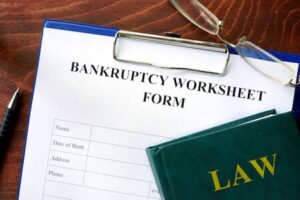
A Chapter 11 bankruptcy is one of the least common bankruptcy types for individuals to file. In fact, when most people think about bankruptcy, they think about Chapter 7 or Chapter 13 bankruptcy–the two most common types of bankruptcy for individuals to file. Most of the time, only businesses, such as corporations, limited liability corporations (LLCs), and partnerships are the ones to file for Chapter 11 bankruptcy, although in some cases, individuals may file if other options aren’t available. At the law offices of Groth & Associates, our Chapter 11 bankruptcy attorneys can answer your questions and guide you through the process of filing.
What Is a Chapter 11 Bankruptcy?
A Chapter 11 bankruptcy is often referred to as reorganization bankruptcy, as it is used by businesses (and, as mentioned above, sometimes individuals) to restructure debts. Many companies have used Chapter 11 to file for bankruptcy and restructure their debts in the past, including some of the most successful companies today, such as United Airlines and General Motors.
For a free legal consultation, call (419) 930-3030
How it Works
When a business is insolvent, they may file for a Chapter 11 bankruptcy. With the help of the bankruptcy court, the business may restructure its debts. This involves the business suggesting a reorganization plan; in order for the court to approve it, the plan must be in the best interests of the creditors to whom the business is indebted. While the business has the option of suggesting a reorganization plan, if they do not do so, the creditors can work together to create one.
Usually, a business will continue to operate during the bankruptcy process. Only in special circumstances, such as in the case of fraud, will a bankruptcy trustee be appointed to run the business while the bankruptcy is pending; otherwise, the business will have control of their operations as normal.
Personal Injury Lawyer Near Me (419) 930-3030
Pros and Cons of Chapter 11 Bankruptcy
There are some downsides and advantages to filing for Chapter 11 bankruptcy. One benefit of filing for bankruptcy, in general, is that filing for bankruptcy initiatives the automatic stay. Another benefit is that it allows a business to continue operating; for individuals, reorganization bankruptcy can provide a clear path forward to escape financial woes. There are also some downsides, too. One major downside is that the Chapter 11 bankruptcy process is longer and more complex than other types of bankruptcy filings. It can also be difficult to negotiate a reorganization plan.
Call Our Experienced Attorneys Today to Learn More
Whether as a business or an individual, filing for bankruptcy may be the best option if large amounts of debt are making financial independence impossible. At the law offices of Groth & Associates, our experienced attorneys know how difficult dealing with large amounts of debt is. If you are thinking about bankruptcy, we can help. Filing for Chapter 11 bankruptcy may be a viable option for you. Call our team today to learn more about how we can help.
Call or text (419) 930-3030 or complete a Free Case Evaluation form


